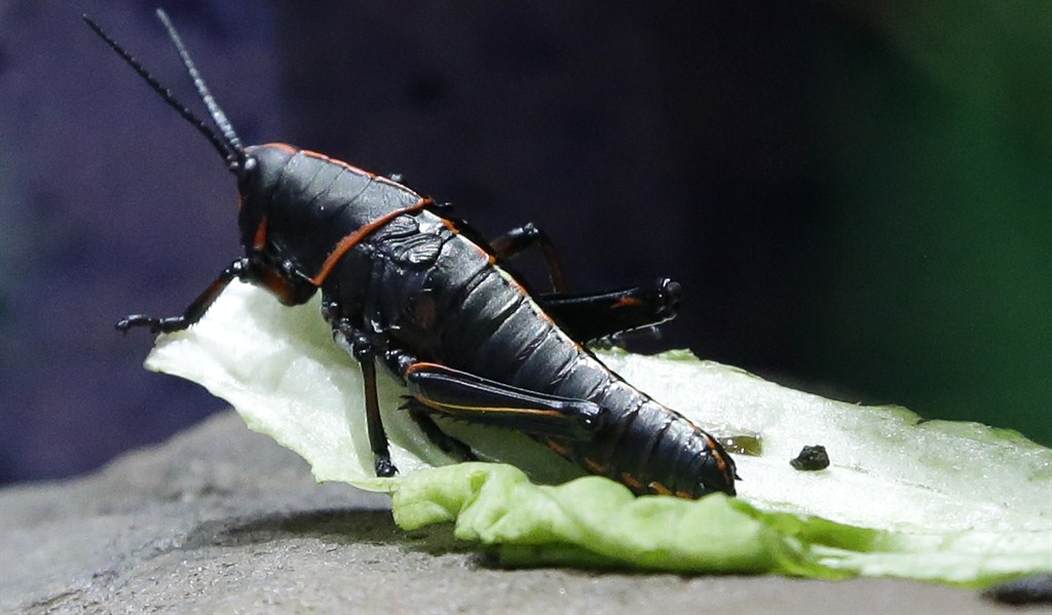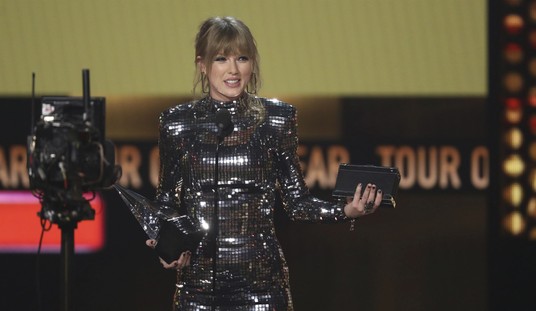The next time you hanker for a hunk of food, how about saving the Earth?
You can do just that by biting into bugs.
And if you happen to live across the pond, you’ve got the endorsement of officials.
As of earlier this month, the European Union had lent its stamp of approval to three atypical tasty morsels.
Bloomberg breaks it down:
Crunchy, nutritious and now likely to hit dinner plates and supermarket isles; three types of bugs have now been certified as food fit for human consumption by the European Union.
European member states have recently approved house crickets, yellow mealworms and grasshoppers as so-called ‘novel foods’ which provides regulation for new them to be brought to market.
Regulation’s well and good, but some people prefer to catch their own. So when you’re in need of late-night nourishment, maybe check the corners of your basement.
And if you’re wondering why government would endorse bugging out, there’s a grand benefit on offer.
Pancrustacean hexapod invertebrates may be an acquired taste; but every evening when you floss out the antennae and tail pipes, you’ll savor the sweetness of global salvation.
Honestly what was the point in knowing the anatomy of a grasshopper/locust 🤔
Cause this has never been an icebreaker when trying to start up a conversation with someone 😒 pic.twitter.com/alB8cPKU4w
— Patrick Nghiwete | Graphic Designer (@PatrickNghiwete) August 14, 2020
Eating more bug muscle means consuming less mammal meat. And the difference is a real gas.
In 2015, the BBC broadcast a report on the environmental advantage:
“This is a 200-gram steak,” host Sahar Zand began. “On the same land it would take to produce this amount of meat, you could actually get two kilograms of edible insects. … The greenhouse gases emitted from producing 200 grams of steak is the same as if you were to produce 20 kilograms of edible insects.”
Benefits also abound if bugs are fed to animals that are then fed to you.
From Bloomberg’s December 17th Technology & Ideas Section:
Globally, animal farms consume more than a third of the world’s total grain production. In the U.S. the share is closer to half. Insect-based animal feeds could be this industry’s best shot at building climate resilience, while also helping to manage a food waste crisis.
As aforementioned, if you want to fight global warming, you don’t need industry to enjoy creepy-crawly cuisine.
Saving Mother Earth’s easy peasy: Just lie in your yard open-mouthed, and let salvation crawl on in.
According to Bloomberg, it’ll be “astounding”:
The environmental benefits of insect proteins both for human and animal consumption are astounding. Black soldier fly larvae, in particular, hold promise: Known in the industry by the acronym BSFL, these infant bugs serve as high-quality chicken and fish feed and require 1,000 times less land per unit of protein produced compared to soy production, between 50 and 100 times less water, and zero agrochemical inputs.
And if you care what your food itself eats:
BSFL have a notable advantage in that they are fed with our food waste, which we rampantly produce, especially in the U.S. Every pound of larvae can munch through 10 pounds of methane-emitting food scraps, playing a significant role in keeping the organic waste out of landfills and reclaiming those nutrients so they can reenter the food chain.
Call it the circle of life.
As for life over the last year, 2021’s been an interesting time for bugs.
See:
Beehold: The Return of the Murder Hornet
Their Name is ‘Brood’: America Prepares for a Plague of ‘Trillions’ of Locusts
Pest Control for the Problematic: World’s Largest Insect Organization Cancels a Name That Bugs Them
Just in Time for Mother’s Day: The World Gets Its First Nonbinary-Named Insect
Insects are even saving us from our present plague:
Scientists Whip up a New Way of Fighting COVID-19 — With the Help of Insects
If you’d like to get more involved in our natural new normal, perhaps you’ll consider mating mealworms.
As reported by The Associated Press, “EU officials said breeding [insects] for food could have environmental benefits.”
But a word of warning when taste-testing Tenebrio molitor beetle larvae:
Allergic reactions may occur for people with pre-existing allergies to crustaceans and dust mites, the [EU’s food safety agency] said.
Awwwww here’s a good dose of #entocuteness for you folks! It’s larvae chowdown time in the mealworm tanks #nomnomnom
(Mealworms are darkling beetle larvae Tenebrio molitor) pic.twitter.com/Pa4mcnVGyv— Sally-Ann Spence (@minibeastmayhem) January 20, 2019
So what exact world are we trying to save? The old one’s molted away, in more ways than one.
These days, we cover our faces while driving, separate people by race, and crunch on crickets.
If that’s the progress 2021’s bestowed, imagine what 2022 has in store.
Back to Bloomberg, God bless you, me, and maggots:
The European Union’s landmark decision to approve insects for human consumption was a victory for grubs and maggots — and people — the world over. The approval confers a kind of dignity to the lowly, protein-rich microbeasts that we foolishly dismiss as pests, and delivers a clear signal that the insect proteins industry is poised for significant growth. Above all, it paves the way for an alternative protein source that should play a critical role in feeding a hotter, more populous world.
Happy New Year. Enjoy your black soldier fly larvae and grasshoppers.
But also don’t forget the black-eyed peas, cabbage, and greens — we’re going to need all the luck we can get.
-ALEX
See more content from me:
Yale Cans Colonial Violence by Disarming a Puritan, Rips out a Near-Century-Old Piece of Art
Virginia School District Targets Inequity by Shooting at Grades and Deadlines
Transgendered Contestant Becomes Iconic Game Show’s Winningest Woman
Find all my RedState work here.
Thank you for reading! Please sound off in the Comments section below.














Join the conversation as a VIP Member